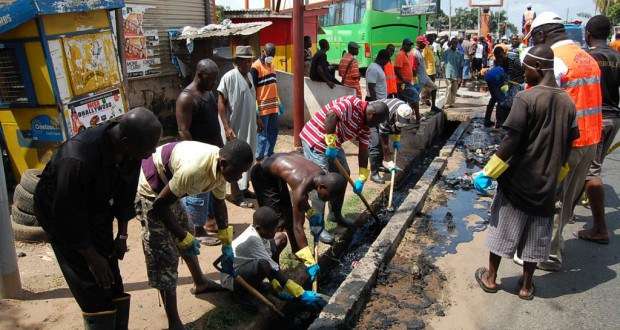The Nigeria Centre for Disease Control (NCDC) has called on Nigerians to adopt environmental sanitation towards prevention of infectious diseases in their domains.
The Chief Executive Officer, NCDC, Dr Chikwe Ihekweazu, made the call in an interview with the News Agency of Nigeria (NAN) in Abuja on Sunday.
Ihekweazu said that most factors leading to transmission of communicable diseases could be prevented through hand washing, keeping clean environment, boiling water before drinking and avoiding open defecation.
He however added that the most effective preventive measure in public health was vaccination.
”We can protect ourselves by ensuring our environment is kept clean always, washing our hands regularly, avoid open defecation, ensure food is well cooked and stored, boil water before drinking and avoid self- medication.
”There are effective vaccines for diseases like measles, meningitis, yellow fever, typhoid fever etc.
“These vaccines are available as part of the routine immunisation schedule in the country and are freely available at primary health care centres,” he said
Ihekweazu said that NCDC would continue to support state governments and stakeholder in the health sector to prepare for response to disease outbreaks.
”Recently, we have begun a state public health Emergency Operations Centres (EOC) project; supporting states in developing these coordination platforms.
”As at the end of November 2018, we have established EOCs in ten states and conducted incident management training in these states.
”We continue to strengthen our diagnostic capacity. The National Reference Laboratory in Abuja, coordinates other public health laboratories within our network to ensure timely diagnosis of pathogens causing outbreaks.
”We have an active engagement with the public, through the media and social media channels. Our website has key messages on disease prevention, outbreak information, guidelines etc.
”The Government of Nigeria has prioritised health security and this is evident in the support to NCDC and other agencies,” he said.
He said that during outbreaks, NCDC usually worked with National Primary Health Care Development Agency (NPHCDA) to plan and implement reactive vaccination campaigns for specific diseases.
He also stressed the importance of avoiding self-medication and the need for Nigerians to attend health care centres for testing, especially before treating fevers.
”It is very important to present early to a health centre, as this increases the chances of survival,’’ he said.
He said that the NCDC had a National Reference Laboratory in Abuja coordinating the diagnosis of epidemic prone diseases.
”We also have a campus in Lagos- Central Public Health Laboratory, Yaba.
”Together with our network of laboratories in states, we have the capacity to diagnose epidemic prone diseases in Nigeria like monkey pox, Lassa fever, cholera, cerebrospinal meningitis, measles and yellow fever.
”Within the public health laboratory system, we are currently developing capacity for genomic sequencing, a laboratory method that will provide better understanding on the viruses or bacteria in circulation.
”We have recently begun a national sample transportation system, to effectively transport samples from state capital to the national reference laboratory or laboratories within the network,” he added. (NAN)

